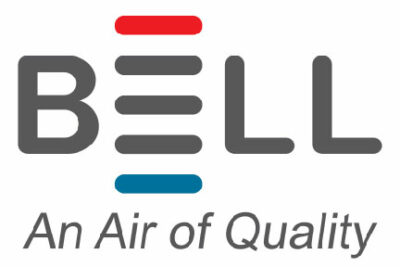Have you ever performed a double take when you viewed your last energy bill? Even though high energy bills can be the consequence of intense weather conditions, consistently high bills can also signify an inefficient HVAC system or your home is wasting energy because of other means, such as drafty windows or inadequate insulation.
An easy way to determine whether your home is consuming too much energy is by hiring a home service specialist to perform a home energy audit, also known as a home energy assessment. Keep reading to learn all about home energy audits, including what they are and their benefits.
What Is a Home Energy Audit?
An energy audit is a custom inspection of how much energy your home uses up and whether – and where – your home may be losing or wasting energy. An inspector will take a look at older energy bills during an energy audit to find out where energy is being consumed and how much.
The overall goal of an energy audit is to help homeowners save money on their energy bills by identifying energy-efficient updates, which may include swapping out your current HVAC system, adding new insulation, closing up leaks, or replacing drafty windows.
During the energy assessment, the auditor carries out an inspection of the outside and inside of your home. The auditor will perform a blower door test on doorways, windows and fireplaces to figure out if there are air leaks in your home. They’ll also evaluate your home’s HVAC system, as well as the ductwork, the water heater, and the insulation in your attic. Some assessments might also include checking your current lighting system.
Benefits of a Home Energy Audit
It can be difficult for the typical homeowner to be sure how efficient their home is compared to other similar homes in their neighborhood. However, lots of energy companies often supply information about where your home is ranked in comparison to similar homes and whether it’s more efficient, about average, or inefficient compared to your neighbors’ homes. This could be a great starting point to decide if you need an energy audit completed.
Several of the benefits of a home energy audit include:
Understanding How Efficient Your Home Is
It’s good to understand how efficient your home is and where you’re consuming the most energy. For example, if your ducts are leaking air, it could lead to a large increase in your energy bills and excessive wear and tear on your HVAC system since it has to stay on longer to completely heat or cool your home.
Making Energy-Efficient Improvements
An energy audit can outline where you need to make energy-efficient upgrades to cut back on energy and decrease utility bills. This might include replacing old weatherstripping or installing a new energy-efficient furnace.
Improving Health and Safety
Permitting air to leak into your home through doors and windows, or due to a lack of insulation can cause extra moisture to form, which could negatively impact your home’s humidity levels or produce mold. This can lead to health issues, particularly for people suffering from asthma or allergies.
Adding to Your Home’s Retail Value
Energy-efficient homes are sought after by homebuyers. You can sell your home more quickly or for more money by showing possible buyers that it’s energy efficient.
How to Perform an Energy Audit of Your Home
Although performing an energy audit on your own may not be as thorough as choosing a professional, it’ll offer you a generalized idea of how energy efficient your home is. If you don’t discover any issues during the DIY test, then you probably don’t need to hire a professional. Use this step-by-step checklist:
- Review your HVAC system. Leaky ducts can lose up to 20% of conditioned air, leading to more expensive energy bills and excess strain on HVAC equipment. If you find leaks, use duct tape to close them. If your HVAC equipment is old and wearing down, upgrading to a new system can save you a considerable amount on your energy bills. In some cases, it can be better to call a reputable HVAC company to inspect your system.
- Watch for signs of air leaks. Air leaks on average can raise your energy bills by 10 to 20%. Inside, look for air leaks in areas where there is a draft, including along the edge of flooring and near baseboards and electrical outlets. Outside, you can look for air leaks along the home’s foundation, siding and mortar. Plug, caulk or seal any air leaks to save money.
- Examine insulation. If your home is older, it could mean your insulation is too. If you can see the joists, you likely need more insulation.
- Check ventilation. Check that all of your kitchen and bathroom exhaust fans are working properly, and inspect for evidence of rot or moisture.
Contact Bell Mechanical Services for a Professional Energy Audit
If you would like professional help finding out how energy efficient your heating and cooling equipment is, contact the HVAC experts at Bell Mechanical Services today. We’ve proudly serviced the residents of McKinney and Frisco with quality home services for years. Contact us today to schedule an appointment.
